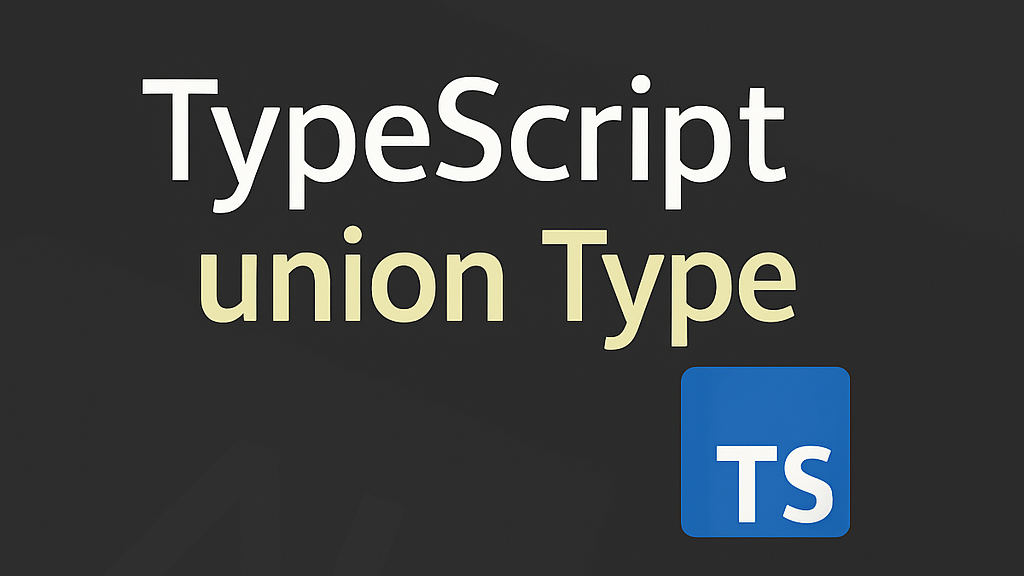TypeScript的union类型
什么是 TypeScript 的联合类型(union type)?
TypeScript 的联合类型允许一个变量可以存储多种类型的值。比如,变量可以是 number 或 string,也可以是 number 、 string 或 boolean 等多种类型之一。使用联合类型可以提升类型安全,避免 any 带来的潜在问题。
为什么需要联合类型?
在实际开发中,有些函数的参数可能既可以是数字,也可以是字符串:
function add(a: any, b: any) {
if (typeof a === 'number' && typeof b === 'number') {
return a + b;
}
if (typeof a === 'string' && typeof b === 'string') {
return a.concat(b);
}
throw new Error('Parameters must be numbers or strings');
}
如果参数类型用 any,TypeScript 编译时不会报错,但运行时可能出错(比如传入 boolean)。这时就需要联合类型来限制参数类型,提高类型安全。
如何在 TypeScript 中声明联合类型?
可以使用 | 符号将多种类型组合。例如:
let result: number | string;
result = 10; // 合法
result = 'Hi'; // 合法
result = false; // 不合法,编译报错
如何用联合类型改进函数参数的类型安全?
将函数参数类型从 any 改为联合类型,例如对上面 add() 进行联合类型改造:
function add(a: number | string, b: number | string) {
if (typeof a === 'number' && typeof b === 'number') {
return a + b;
}
if (typeof a === 'string' && typeof b === 'string') {
return a.concat(b);
}
throw new Error('Parameters must be numbers or strings');
}
这样,只有传入 number 或 string 类型的参数才会通过编译,其他类型会报错。
联合类型的实际应用场景有哪些?
- 需要函数参数或变量可以接受多种类型的值时
- 处理多种输入类型但逻辑类似的场景
- 增强类型安全,减少运行时错误
-
如果你觉得我的工作对你有帮助,可以通过分享和推荐这篇文字或者关注同名公众号来支持我,你的支持是我持续创作的最大动力:
![image]()
-
转载以及引用请注明原文链接。
-
本博客所有文章除特别声明外,均采用CC 署名-非商业使用-相同方式共享 许可协议。



 TypeScript的union类型的语法,以及该类型可以解决什么问题。
TypeScript的union类型的语法,以及该类型可以解决什么问题。


 浙公网安备 33010602011771号
浙公网安备 33010602011771号